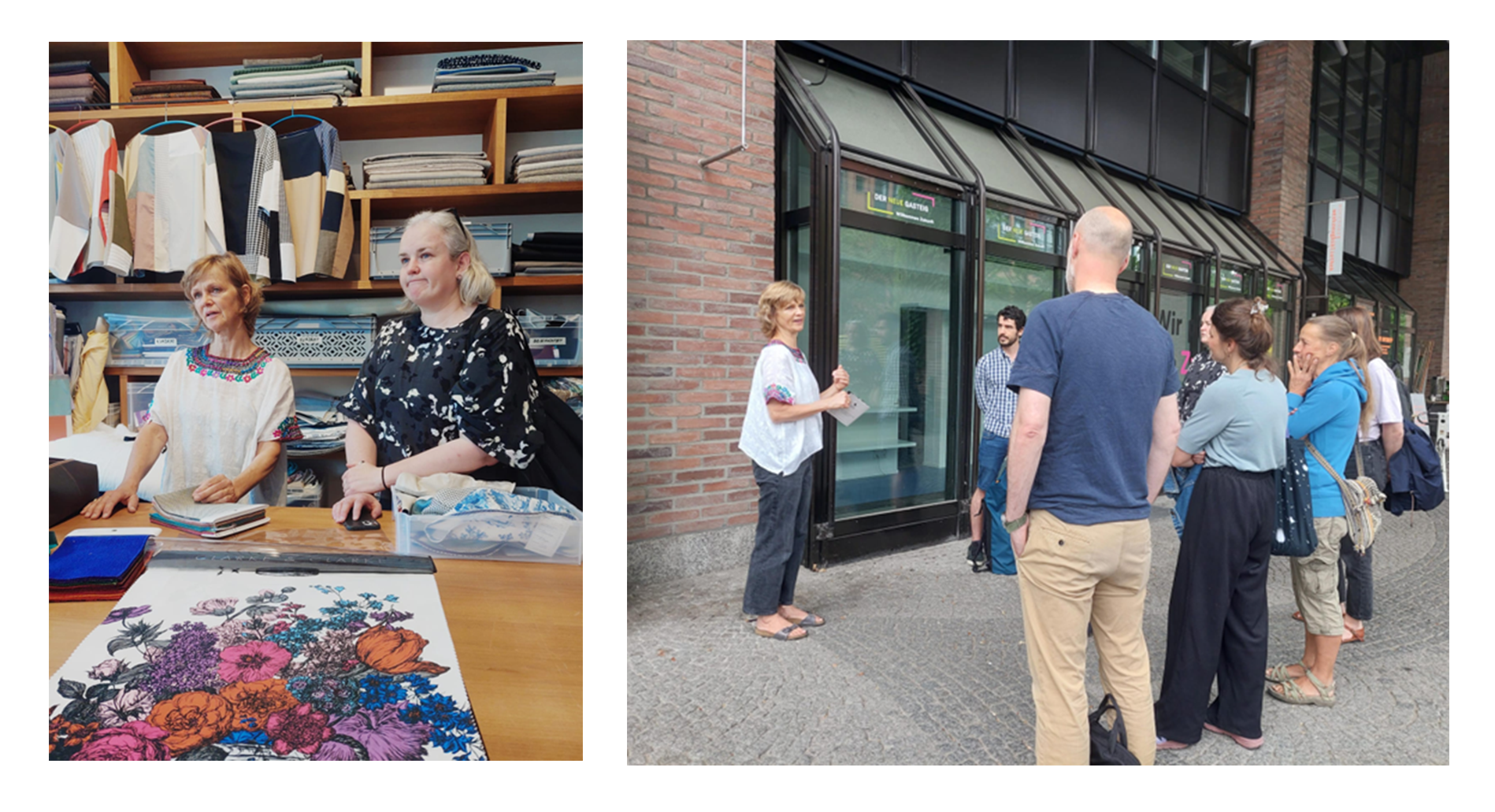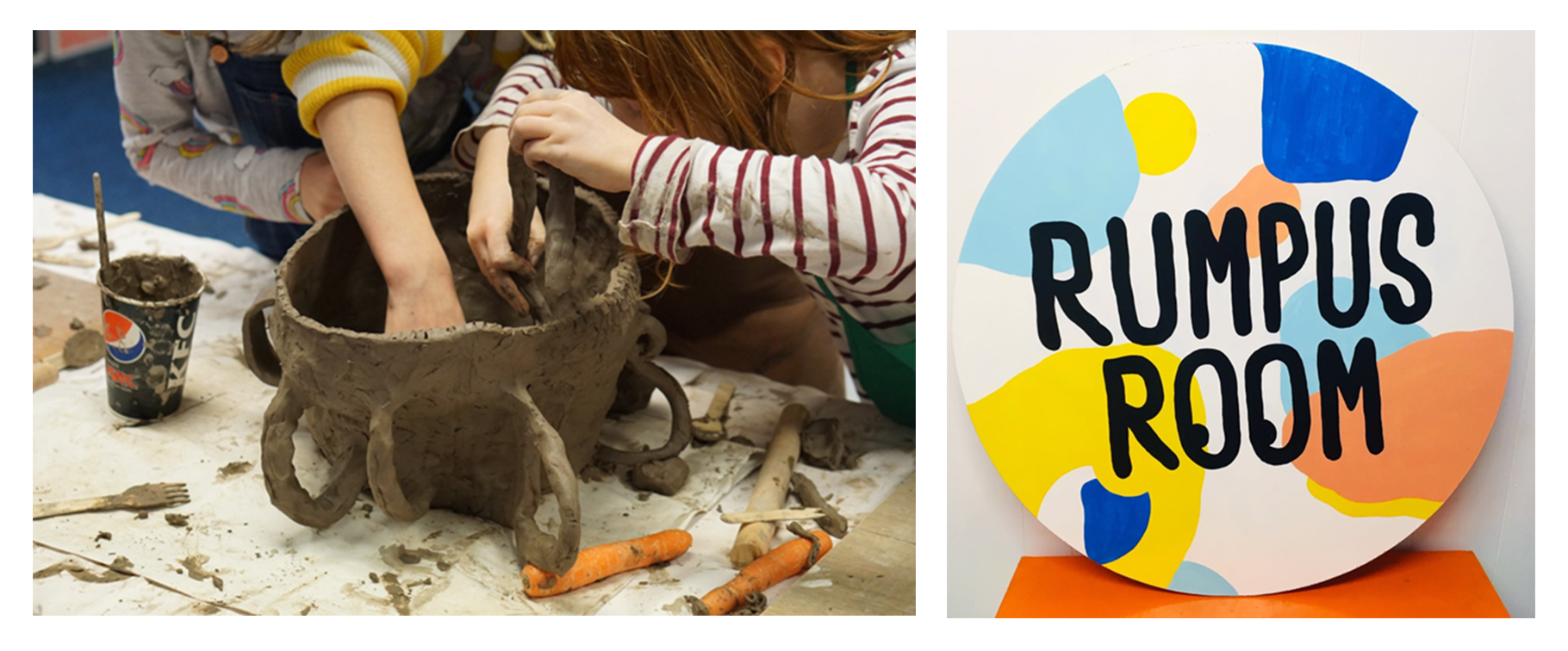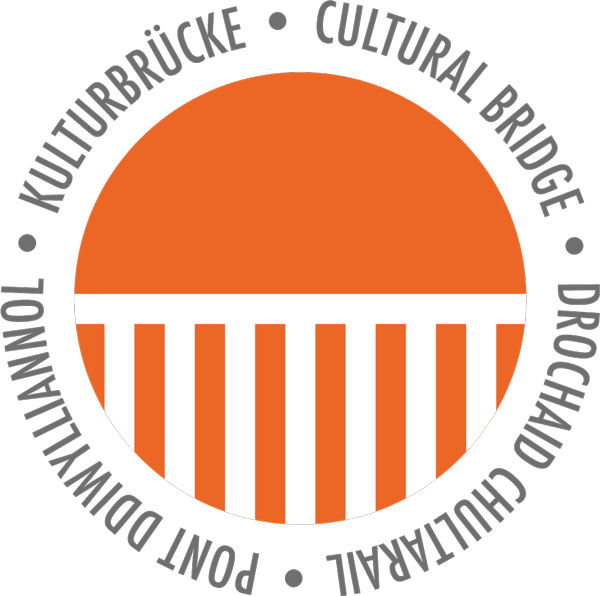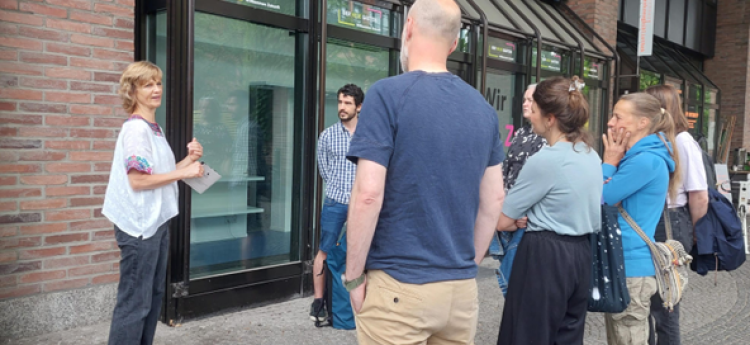When we think of local production spaces, craft manufacturing or repair cafés, the first things that come to mind are the tools, workshops, machines and the different types of manual activities that can be done in these places. And if we think about starting our own initiative, we may first think about administrative issues such as: how to get funding, how to obtain tools and materials, or where we can have a space to work on these kinds of manual projects.
But what about the people who can participate in our projects? Who do we want to benefit from our initiatives? What makes an initiative or project local?

Image: Kissi Baumann showing the BESPOKE participants her studio. Photographer Sofía G
The answers to these questions were constantly found in the organisations we visited during this cultural exchange. An example of this is Bellevue Couture in Munich, a studio that designs and creates textile products by upcycling materials. Managing Director Kissi Baumann started this initiative with different motivations, such as reducing the high environmental impact of the fashion industry. For this purpose, Bellevue Couture uses only recycled leftover textile samples / end-of-runs for the creation of all its pieces: handbags, blouses, wallets, etc. These textiles, previously used by fashion designers or upholsterers, are of high quality and offer the pieces a long durability. However, for Kissi it is not only local/sustainable production that is important, as she thought about how her work could include a social approach. For this reason, the studio was founded as a project that supports refugee women who in their home countries (such as Congo and Afghanistan) used to work as professional seamstresses. In addition to providing work for these women, Bellevue Couture offers a safe and ethnically sensitive space. We were greeted at the studio by beautiful pieces made from different types of textiles, which provided splashes of colour, patterns and textures in every corner. But the best part was seeing the smiles and meticulous work of the professional dressmakers who create truly unique pieces.
As a next example in relation to the theme of diversity, we have the case of Rumpus Room, a community collective based in Glasgow, Scotland. What makes this organization so special is that its main focus is the inclusion of children and teenagers. In Rumpus Room, children and teenagers learn about various topics such as gardening, growing organic food, arts, crafts, cooking, workshops on environmental sustainability and biodiversity, among others.
When we visited Rumpus Room, we were immediately enchanted by the dynamic and lively atmosphere offered by its members. It was wonderful to see the walls of each room decorated with all kinds of art projects made by the children and young people. This experience reminded us that it is highly important that workshops, tools, and materials have to be handled also by people with small hands and enormously creative minds. In an age of capitalist production/consumption, technology and social media, it is vital to have spaces that teach future generations the value of sustainability, of what is handmade, of present friendships, of community cooperation to undertake a project and of the treasures they can find in their local communities.

Images © Rumpus Room
In addition to different types of activities and learning, Rumpus Room also offers a space to include young people belonging to the LGBTIQ+ community. In its rooms, workshops and projects are held to help raise awareness of the rights of the community, and to provide young people with safe spaces for new friendships and support networks. The result of Rumpus Room's work has not only paid off for the children and young people, but also for their parents and neighbours living in the surrounding area.
The cultural exchanges helped us to reflect on the meaning of the word "local". Going back to the question of what makes an initiative local, we better understand that it is not enough that the materials come from the local region, or that the activities take place in a certain small-scale geographical region. What makes an initiative local is precisely that it strives to include and integrate the community (neighbours, students, children, parents, migrants, etc.) around it. Enabling people to learn and embrace the objectives of a local initiative can bring about significant changes in a community. It is these small changes that drive the big (and meaningful) transformations in a society.
This blog post is part of a series of articles that document and explore the themes and activities that have taken place during Bespoke, a Cultural Bridge partnership between Make Works Scotland 'Paved with Gold' (Scotland) and Kulturzentrum LUISE (Germany). Find out more about the partnership.
Related articles:
The integration of women in the local production and handicraft manufacturing sectors

